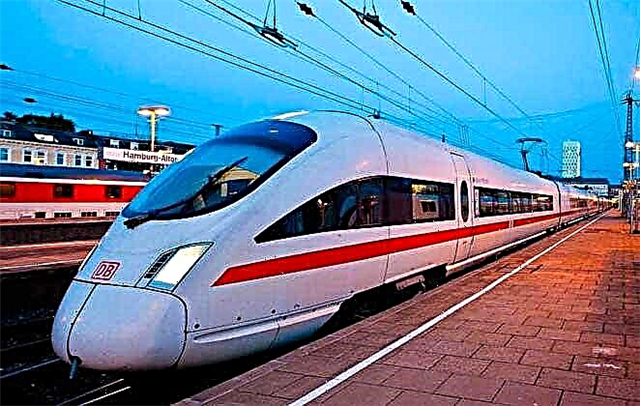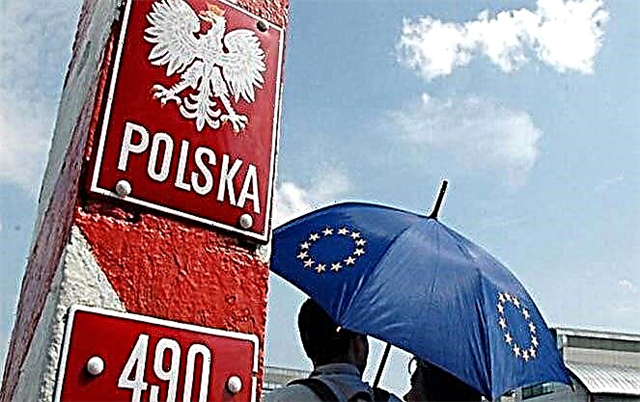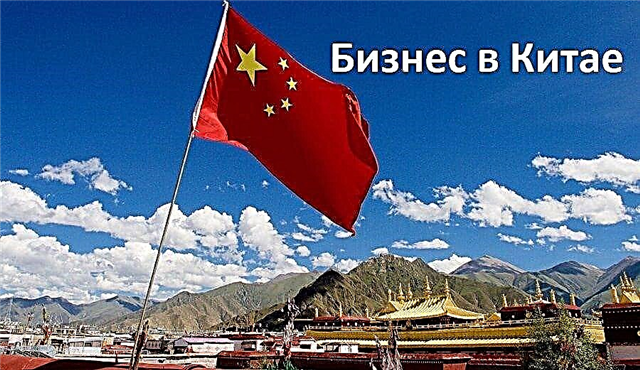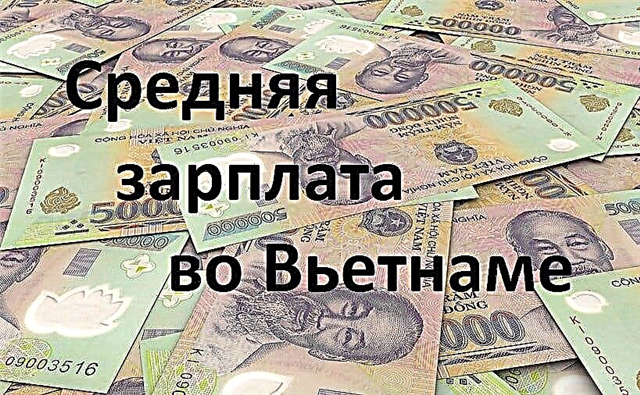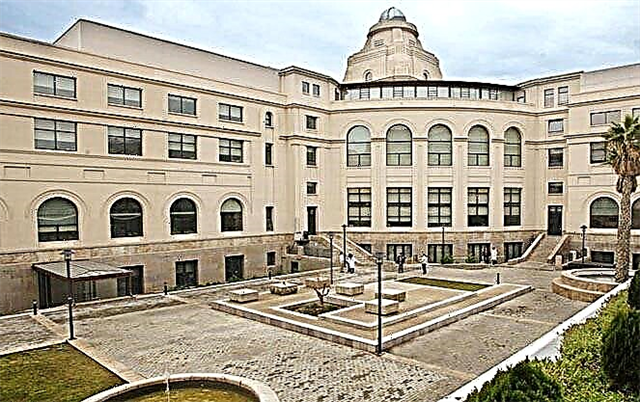Universidad de Valencia (UV) is a higher education institution that has been the flagship of university education in Spain for several centuries. The main goal set by the administration of the university is the training of specialists of the European level and the encouragement of the research work of its pupils. One of the oldest universities in the country gladly accepts foreign students and opens up the broadest opportunities for successful employment. It will be interesting for everyone who is on the verge of choosing their future alma mater to learn about the structure of the University of Valencia and how to enter one of its specialties.

General information about the university
The date of foundation of the University of Valencia is considered to be April 30, 1499. Today it is one of the few higher education institutions in Europe with its own constitution. Since its inception and for a long time, the main subjects studied at the university have been Latin, Greek, mathematics, theology, canon law and other classical disciplines.
The 17th – 18th centuries became a real period of prosperity of the university. However, in 1808, the main building of the university was destroyed by the troops of Napoleon's army, and restoration work began only in the second half of the 19th century, which negatively affected the educational process.

And in 1932, the building was again damaged by fire. Full restoration was completed only in 1999, which meant the revival of the academic, scientific and cultural life of the university.
Currently, almost all of the university buildings are located in the new part of Valencia. Most of this territory is given to students, since student hostels are also located here.
The popularity of the university is ensured by its high positions in various ratings:
- TOP-20 universities in Europe;
- TOP-400 universities in the world in terms of education quality;
- 3rd place among higher education institutions in Spain;
- 2nd place in Europe in terms of the number of students coming under the Erasmus exchange program;
- 2nd place among universities in the world in the category of nuclear and inorganic chemistry (after the Chinese University of Nanjing);
- 4th place among universities in the world in the field of reproductive biology.
World rankings are provided by the Center for World University Rankings (CWUR).
Today, about 60 thousand students study within the walls of the university, of which 5% are foreign citizens.
What faculties and specialties does the university offer?

The choice of faculties in UV is quite extensive:
- biological sciences (Biological Sciences);
- economics (Economics);
- geography and history (Geography & History);
- chemistry (Chemistry);
- mathematics (Mathematics);
- law (Law);
- medical (Medicine & Odontology);
- pharmaceutical (Pharmacy);
- philology, translation and communication (Philology, Translation & Communication);
- philosophy and educational sciences (Philosophy & Educational Sciences);
- physical education and sports (Physical Activity & Sport Sciences);
- psychology (Psychology);
- physics (Physics);
- sociology (Social Sciences);
- engineering (Engineering Technical Schools);
- physiotherapy (Physiotherapy);
- nursing (Nursing & Chiripody);
- pedagogical (Teaching).
The training program is designed both for those wishing to get their first higher education and postgraduate education. Today available here:
- 315 specialties;
- 112 master's programs;
- 74 doctoral programs.
The teaching staff numbers about 2800 teachers.
A little about the infrastructure of the university
UV consists of three campuses:
- Blasco Ibáñez
- Tarongers Campus;
- Burjassot-Paterna.
All these areas are connected by metro and tram lines with numerous research institutes and the School of Engineering.

The Blasco Ibanez campus is located on the street of the same name. It houses the administration, main university administrative services, Lluis Vives dormitory, Joan Regla Humanities Library, Pelegri Casanova Medical Library, Physical Education and Sports Library, Sports Campus, and the following faculties:
- nursing;
- medicine and dentistry;
- geography and history;
- psychology;
- philosophy and educational sciences;
- linguistics, translation and communication;
- physical culture and sports;
- physiotherapy.
The Tarongers campus was one of the first to be built. It is located between Tarongers and Ramon Llull streets. On its territory there are:
- Sanchis Guarner Center for Education and Quality;
- audiovisual laboratories;
- hostel Damiá Bonet;
- Research institute;
- Library of Social Sciences Gregori Maians;
- library of educational sciences;
- sports campus;
- Faculty of Law, Economics, Social and Educational Sciences.
The remaining faculties and associated libraries are located on the Burjasot-Paterna campus. The list of objects that belong to the university, however, does not end there. One of the most prestigious and oldest educational institutions in the country unites:
- a large number of branches;
- subsidiary centers;
- historical monument of architecture La Nau (La Nau);
- Jardin Botánico botanical garden;
- Palacio de Cervero.
Despite the fact that UV offers training in a wide variety of areas, including technical, it is still customary to call it literary, so as not to be confused with the Polytechnic University, located here in Valencia.
What programs are available for applicants
Given the fact that the university adheres to the classical education system, students are given the opportunity to choose any of the programs they like and get a diploma, sequentially moving from one level to another:
- bachelor's degree - the period of study is 4-5 years, depending on the specialty;
- Master's degree - the degree is awarded only after receiving a bachelor's degree;
- doctors - the term of study is 2-5 years, available only with a master's degree.
How to get a bachelor's, master's or doctoral degree
You can become a first-year student and subsequently receive a bachelor's degree immediately after graduation. Residents of the country are admitted to the chosen faculty based on the graduation score. The completion of the bachelor's degree entitles the holder of the diploma to start building his career, however, they will have much less opportunities for successful growth than those who will move on to the next stage.
The Master's program at UV is available in the following areas:
- architecture and engineering;
- social sciences and law;
- arts and humanities;
- exact and natural sciences;
- health and medicine.
In addition, students have the opportunity to choose training in two specialties at once. For example: sociology + politics and public administration. There are also so-called International Dual Degrees programs, when graduates receive a diploma from two universities at once - for example, a master's degree in chemistry from the University of Valencia and the University of Strasbourg):
- business management and administration;
- economy;
- international Business;
- right.
Partner universities in this case are educational institutions located in cities such as:
- Nantes (France);
- Strasbourg (France);
- Heilbronn (Germany);
- Nottingham Trent (UK);
- Hertfordshire (UK);
- Bremen (Germany);
- Wilmington (USA, University of North Carolina);
- Stavropol (Russia, Academy of National Economy and Public Administration);
- Florida (USA).
The final stage of study at a Valencian university is a doctorate. Applicants can choose one of the following areas:
- engineering;
- health and medicine;
- sociology;
- humanitarian sciences.
At this stage of study, it is also possible to obtain a double diploma.
Preparing for university entrance
Like any other higher school in the country, UV offers assistance to applicants from abroad in preparing for the entrance exams.The preparation process takes about 8 months (October-May). Considering that teaching at the university is conducted in the Valencian dialect, you will be offered to take language courses, but on condition that you already speak some level of Spanish. If there is no such knowledge, it is better to choose a faculty where it is possible to study in English.
A distinctive feature of the university is the Conèixer program, specially designed for prospective students. Its main task is to acquaint applicants with the curriculum, faculties and services functioning at the university.

This initiative was presented by the organization SEDI (Information Service), and the participants of the project are everyone who works and studies at UV.
Every year, within the walls of the educational institution, events are held to familiarize students with international exchange programs and internships in foreign universities. Today, applicants can take advantage of the following opportunities:
- Erasmus program - for citizens of countries that are signatories to an agreement on international exchange (28 EU states, Iceland, Norway, Liechtenstein, Turkey, Macedonia). Residents of third countries can also take advantage of this opportunity, but only if they have a permanent residence permit in Spain;
- SICUE program. The selection of candidates is carried out on the basis of the average score. The list of host educational institutions contains the official website of the university;
- International Program (IP) - for postgraduate students only. Not intended for internship or internship;
- Erasmus + - specially designed for students from third countries. The project will run until 2021. It provides for the following opportunities: training, exchange of experience, support for political reforms, sporting events;
- program of the Gutenberg University in Mainz (Germany) - summer language courses for UV students.
The list of available programs is updated annually. You can follow him on the university website.
How to enter the university
A prerequisite for admission to UV for foreigners is passing a language test. It can only be avoided if the applicant has a DELE certificate (Diploma de Espanol como Lengua Extranjera), which is recognized by the Spanish Ministry of Education. The document must certainly contain an indication of the level at which its owner speaks the language.
The next stage is the exam, which is the entrance directly to the university itself (Selectividad). Starting in 2021, exams are passed directly at the selected faculty. If the score obtained is too low, you can try to retake the exams in October.
For admission to the undergraduate program, you must prepare the following package of documents:
- DELE certificate.
- High school diploma + grade insert.
- National visa (student, category D).
- International passport.
Applications for admission open at the very beginning of spring. You can submit documents within the following deadlines:
- spring semester - June-October;
- fall semester - March-April.
Specificity of training
After all the entrance procedures are completed, the applicants will have a real student life. At the University of Valencia, it promises to be very busy with a variety of events and activities.
If you decide to become a student of this particular university, it will be useful to know that the following forms of study are provided here:
- daytime;
- correspondence;
- postgraduate education.
The language of instruction at the university is predetermined by its geographical location. Today Valencia is the third largest city in the country and at the same time the capital of the Comunidad Valenciana region. Therefore, the Valencian dialect is considered the official language here. It is on it that most of the programs are taught.
However, due to the fact that the University of Valencia actively accepts students from abroad, some courses are taught in English. The 2021 class calendar looks like this:
| Activity | Period |
|---|---|
| 1st semester | September 10 - December 21 |
| 2nd semester | January 28 - May 15 |
| First semester first session | January 8 - 25 |
| Second semester first session | May 20-June 7 |
| First semester second session | June 12 - July 3 |
| Second semester second session | June 12 - July 3 |
| Holidays | 1 - 31 August |
Scholarships, grants, benefits
Most scholarship programs are designed for those pursuing a Master's or Doctorate degree. The amount of assistance is usually 700-800 euros per month. This not only makes it possible to cover the costs of studies, but also allows them to be used for some current needs.
Another nice bonus is a scholarship within the framework of a joint program of the Spanish Foreign Ministry and the International Cooperation Agency. The project is known under the name Programas de Becas MAEC-AECI.

The applicant must choose the course he is interested in and fill out a special form on the program portal. In order to have time to apply for the upcoming year of study, you need to declare yourself in the period from October to December. The decision on granting the scholarship will be made in April-June.
It should be remembered that grants and other types of incentives and assistance are not provided to everyone - candidates are approved during a special selection.
In addition, applicants can try to obtain a scholarship from the relevant ministry relevant to their specialty: for example, from the Ministry of Industry, Trade or Tourism. The amount of the payment can be up to 20 thousand euros.
There is a separate grant from the Carolina Foundation for students doing research. The authorities of the autonomous region also provide their assistance to foreigners.
Cost and time of training
Tuition fees at the University of Valencia are set annually. The table shows the data for the 2017-2018 academic year.
| Faculty | Price in euros per year |
|---|---|
| Tourism | 1100 |
| Management and business administration | 985 |
| Spanish philology | 985 |
| Art | 1100 |
| Right | 910 |
| Medicine | 1400 |
A master's degree will cost about 3 thousand euros.
But the duration of training will depend on the specialty. For example, doctors study the longest - their bachelor's degree can take 4-6 years, then another 1-2 years of master's degree and 4-5 years of internship. Total for a total of 9-12 years.
But getting the profession of a philologist together with a master's degree will require only 5-6 years.
Payment of food and accommodation expenses
Do not forget that a separate budget will have to be planned for current expenses, such as food, accommodation, travel, rest. Despite the fact that Spain is not a very expensive country to live in, it can still be a heavy burden for a student. The main items of expenditure are given in the table:
| Expenses | Cost in EUR (minimum) |
|---|---|
| Lodging | 124 |
| Food | 111 |
| Fare | 31 |
| clothing | 18 |
| Connection | 59 |
| Sports / Recreation | 16 |
On average, you need to allocate at least 360 euros for 1 month.
Student life
Student life in Valencia is a holiday that never ends. This is largely facilitated by the city itself and its location. The most beautiful Mediterranean coast, numerous attractions, the famous City of Arts and Sciences with its futuristic buildings - all this makes the years spent here unforgettably beautiful and rich.
A separate advantage is a system of discounts for students. For example, tickets to all museums and galleries in the country upon presentation of a student ID will cost 50% less. Separate discounts apply to the entrance to the city's cinemas.

Young people who have not yet turned 26 years old can apply for a special card - Tarjeta Juvenil, which entitles them to the following bonuses:
- minus 20% on any train tickets within the country;
- discounts on some international and domestic flights provided by 36 airlines;
- minus 10-20% for some bus routes;
- free travel insurance for Europe;
- minus 10% for accommodation in some hostels;
- minus 10% on purchases in bookstores.
You can also use this card when visiting most of the theaters, some cafes, shops and gyms.
Conclusions
The University of Valencia is one of the most sought-after educational institutions in Spain. About 60 thousand students study here, including those from other countries. UV ranks high in the world rankings. Teaching at the university is conducted in the local dialect, but those who wish can choose a program in English.
The university has three campuses and many other facilities that are of historical importance. The university includes 18 faculties, most of which have a humanitarian orientation. Due to this, the educational institution is often called "literary".
The university cooperates with many foreign higher schools, which makes it possible for its students to undergo training abroad and receive diplomas from two partner universities at once.



